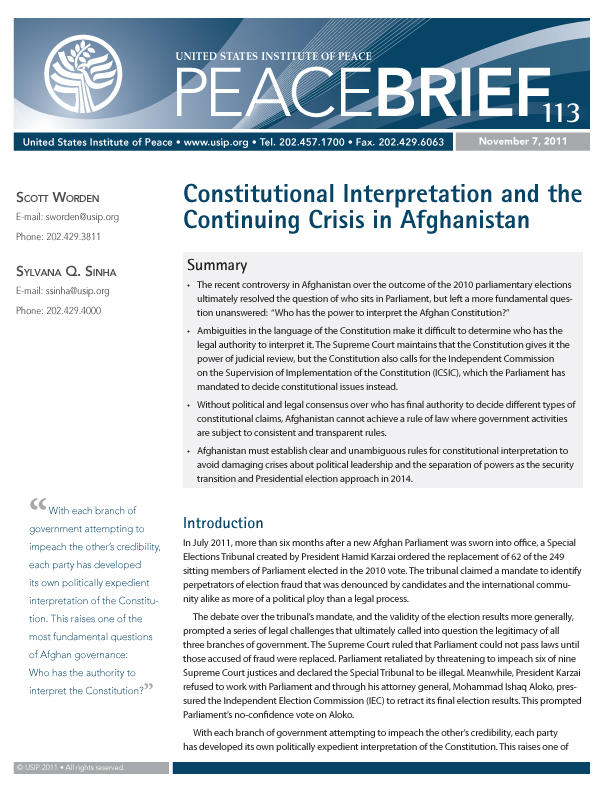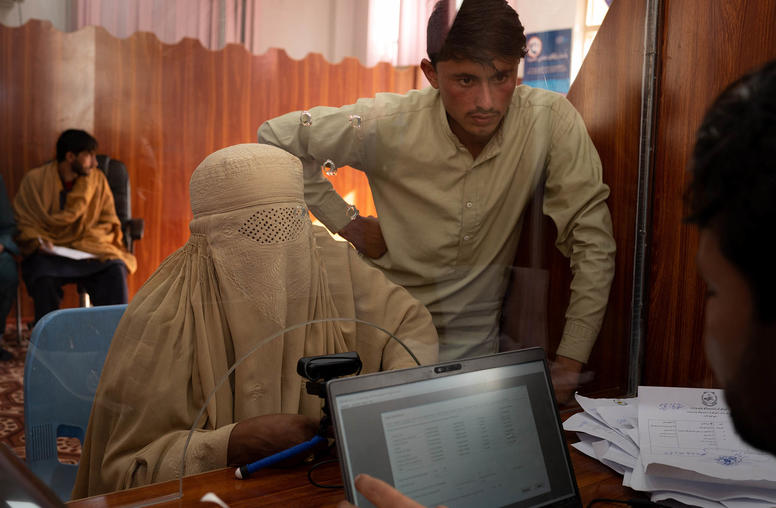Constitutional Interpretation and the Continuing Crisis in Afghanistan
This Peace Brief reports on controversies surrounding interpretation of the 2004 Afghanistan Constitution, which have created a crisis of confidence in the rule of law that the authors argue must be resolved for national reconciliation to occur.

Summary
- The recent controversy in Afghanistan over the outcome of the 2010 parliamentary elections ultimately resolved the question of who sits in Parliament, but left a more fundamental question unanswered: “Who has the power to interpret the Afghan Constitution?”
- Ambiguities in the language of the Constitution make it difficult to determine who has the legal authority to interpret it. The Supreme Court maintains that the Constitution gives it the power of judicial review, but the Constitution also calls for the Independent Commission on the Supervision of Implementation of the Constitution (ICSIC), which the Parliament has mandated to decide constitutional issues instead.
- Without political and legal consensus over who has final authority to decide different types of constitutional claims, Afghanistan cannot achieve a rule of law where government activities are subject to consistent and transparent rules.
- Afghanistan must establish clear and unambiguous rules for constitutional interpretation to avoid damaging crises about political leadership and the separation of powers as the security transition and Presidential election approach in 2014.
About This Brief
This Peace Brief reports on controversies surrounding interpretation of the 2004 Afghanistan Constitution, which have created a crisis of confidence in the rule of law that the authors argue must be resolved for national reconciliation to occur. The research in this report reflects USIP’s ongoing work from its office in Kabul on Afghan constitutional law and rule of law reform.
Scott Worden is a senior rule of law adviser for USIP in Washington, DC with responsibility for the Institute’s rule of law programs. Sylvana Sinha is a rule of law advisor in USIP’s Kabul Office.



